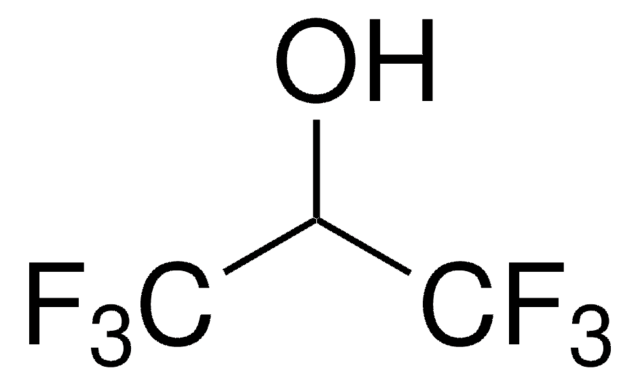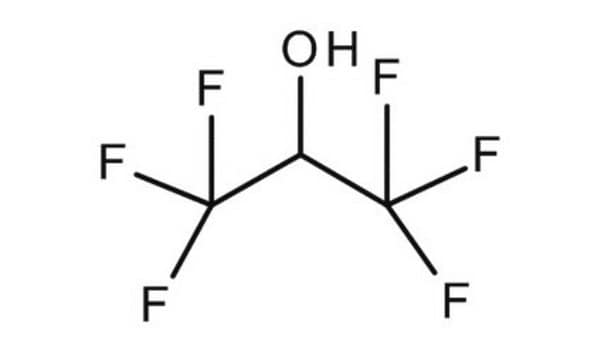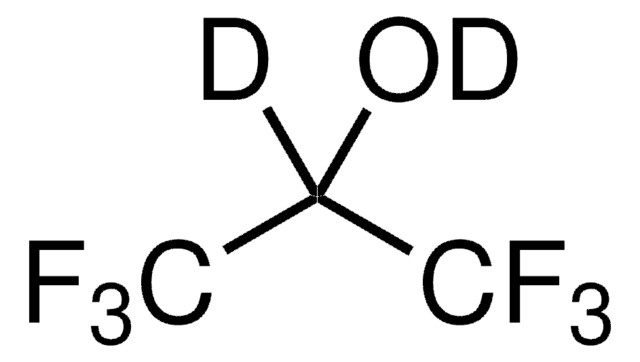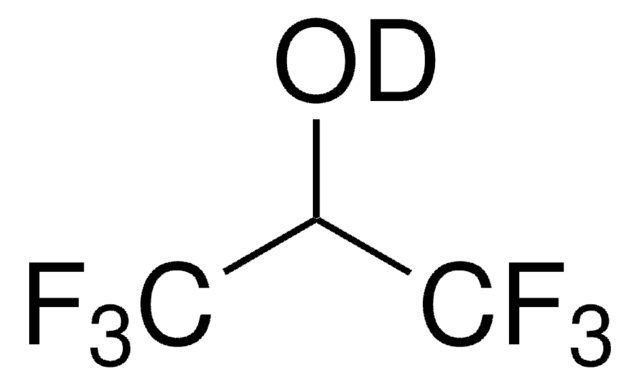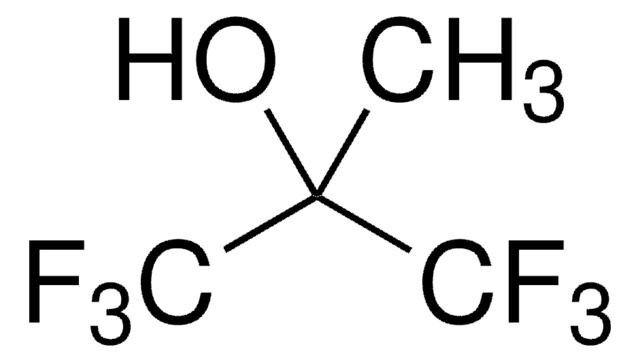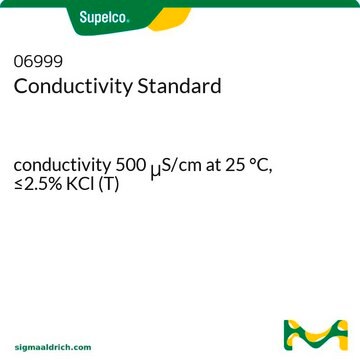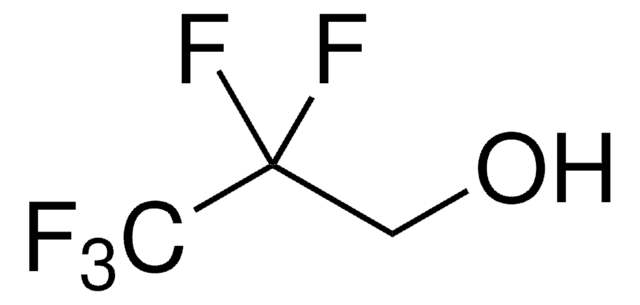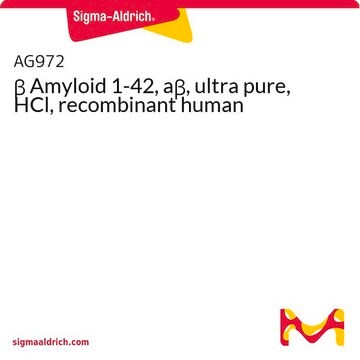52517
1,1,1,3,3,3-Hexafluoro-2-propanol
for GC derivatization, LiChropur™, ≥99.8%
Synonym(s):
HFP, Hexafluoroisopropanol
About This Item
Recommended Products
grade
for GC derivatization
Quality Level
Assay
≥99.8% (GC)
≥99.8%
quality
LiChropur™
reaction suitability
reagent type: derivatization reagent
reaction type: Acylations
reagent type: derivatization reagent
reaction type: Esterifications
technique(s)
gas chromatography (GC): suitable
refractive index
n20/D 1.275 (lit.)
bp
59 °C (lit.)
mp
−4 °C (lit.)
density
1.596 g/mL at 25 °C (lit.)
SMILES string
OC(C(F)(F)F)C(F)(F)F
InChI
1S/C3H2F6O/c4-2(5,6)1(10)3(7,8)9/h1,10H
InChI key
BYEAHWXPCBROCE-UHFFFAOYSA-N
Looking for similar products? Visit Product Comparison Guide
General description
Application
Other Notes
Legal Information
Signal Word
Danger
Hazard Statements
Precautionary Statements
Hazard Classifications
Eye Dam. 1 - Repr. 2 - Skin Corr. 1A - STOT RE 2
Storage Class Code
8A - Combustible corrosive hazardous materials
WGK
WGK 2
Flash Point(F)
No data available
Flash Point(C)
No data available
Personal Protective Equipment
Choose from one of the most recent versions:
Already Own This Product?
Find documentation for the products that you have recently purchased in the Document Library.
Customers Also Viewed
Our team of scientists has experience in all areas of research including Life Science, Material Science, Chemical Synthesis, Chromatography, Analytical and many others.
Contact Technical Service